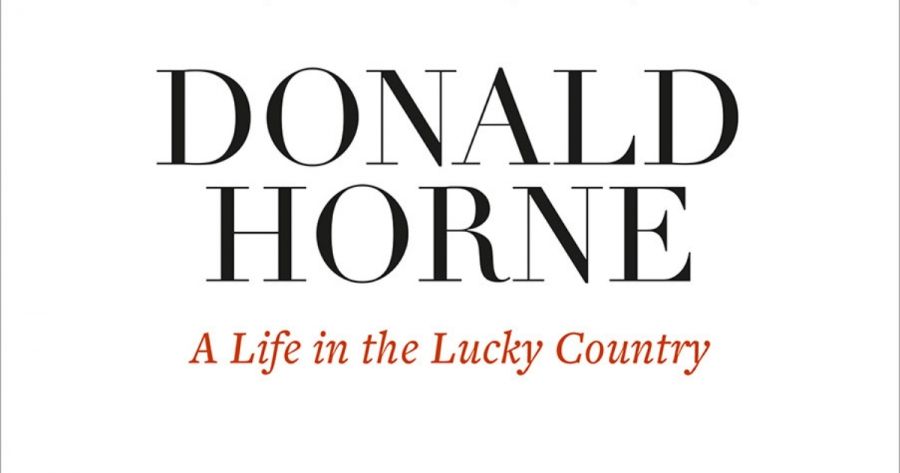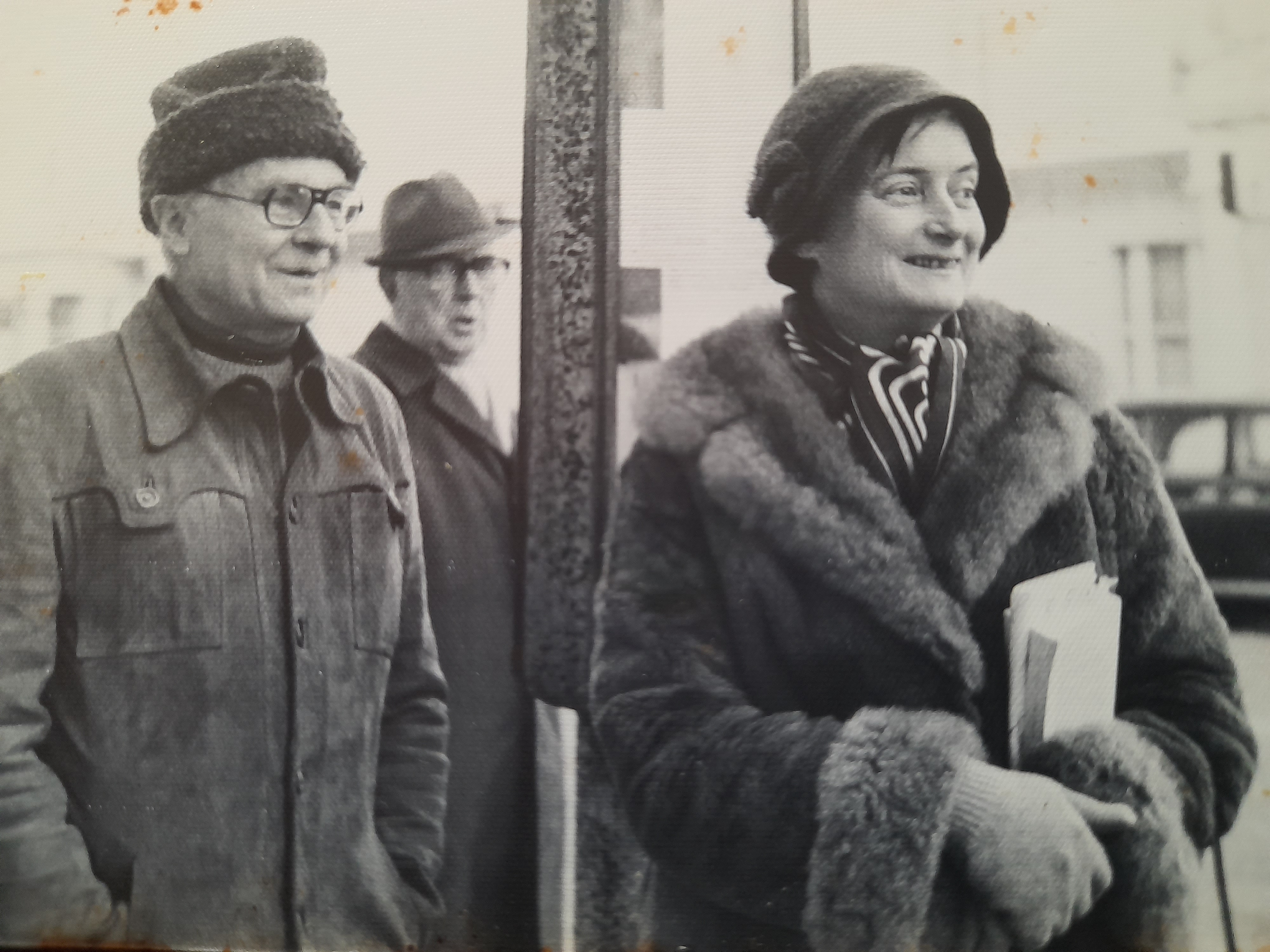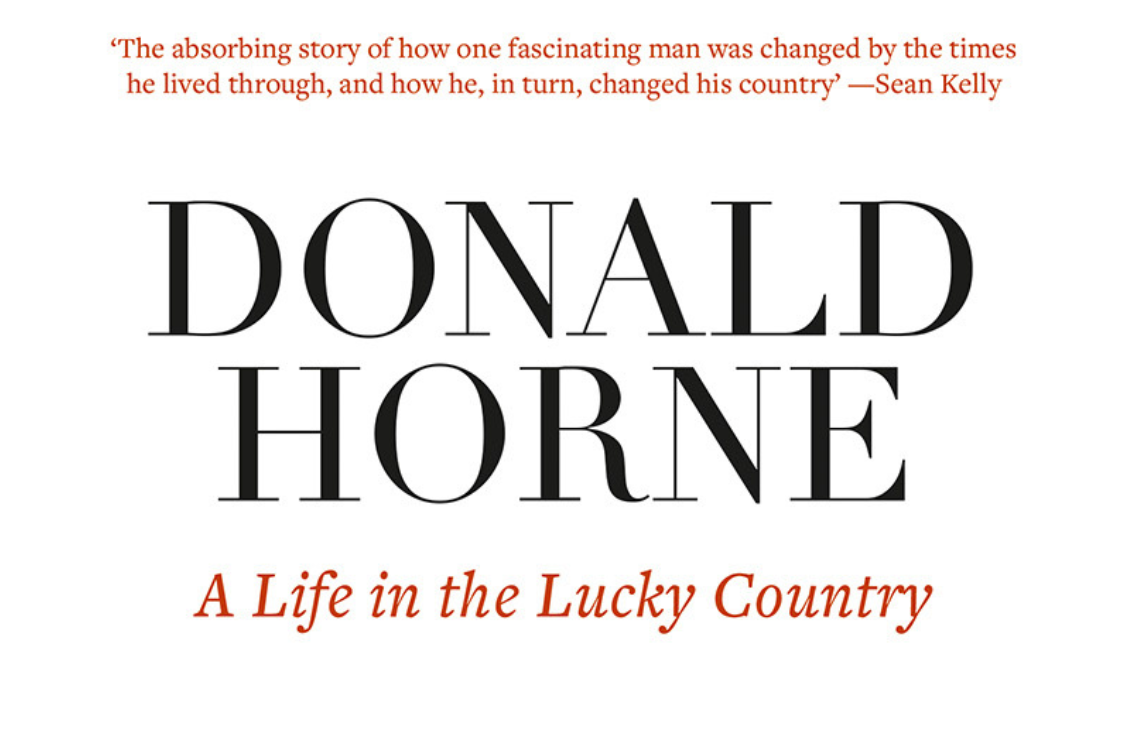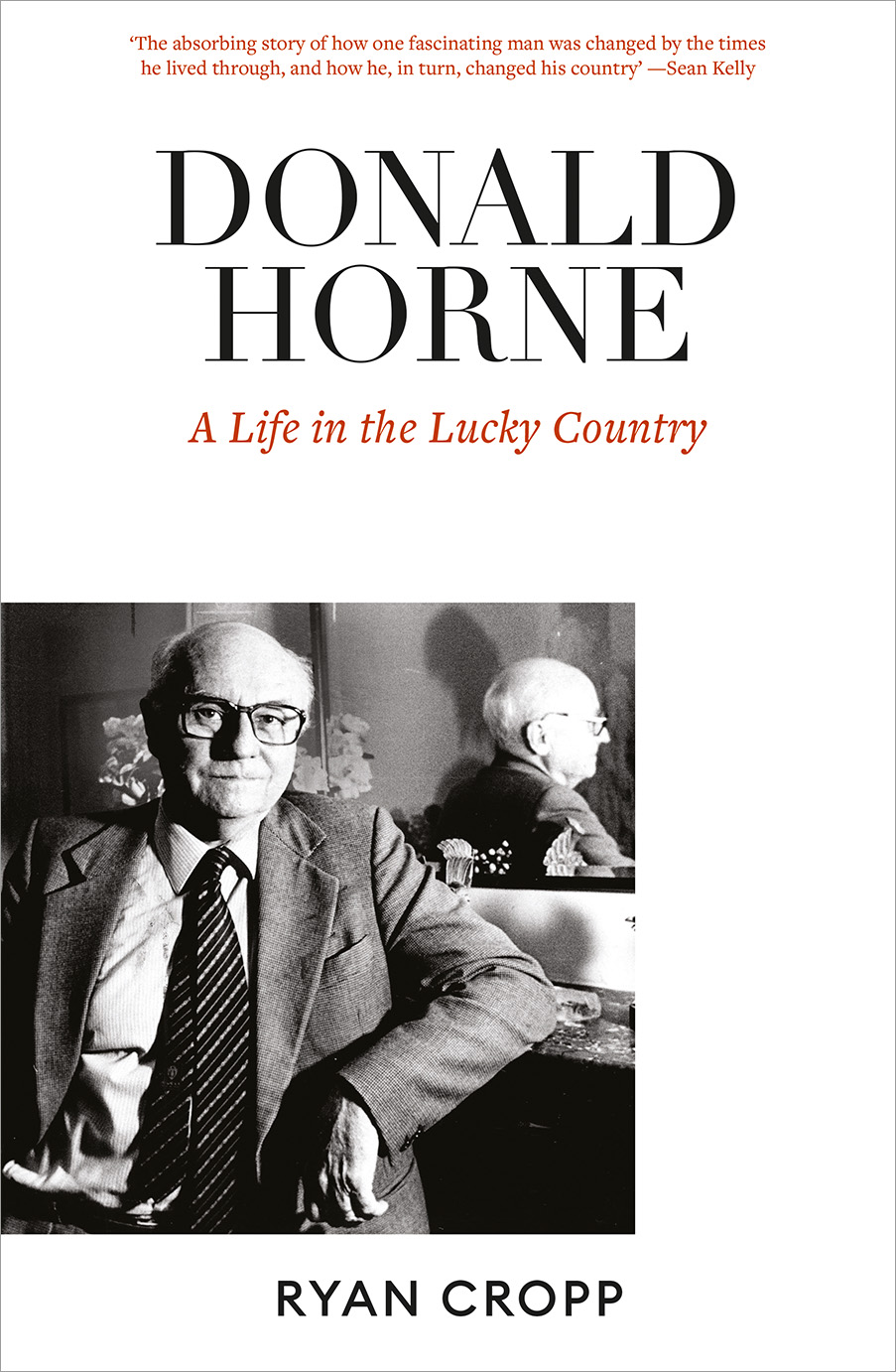
- Free Article: No
- Contents Category: Biography
- Review Article: Yes
- Article Title: Lucky Donald
- Article Subtitle: Australia ‘spellbound in boredom’
- Online Only: No
- Custom Highlight Text:
Here we are again, luck ringing over the land. Ryan Cropp’s new examination of the life and work of Donald Horne (1921–2005) comes out as we resume unpicking the gordian knot of what exactly is Australia. As Cropp observes, it has become impossible to describe this nation without the word luck, as if a continent rolls dice. It is the language of gamblers, of the complacent. It wasn’t introduced by Horne – any survey of the country’s newspapers will find Australia panegyrised or dismissed for riding its luck, but with the publication of The Lucky Country in 1964 Horne caught a truth in a sentence: ‘Australia is a lucky country run by second-rate people who share its luck.’ It was Horne’s personal stroke of luck, changing him as it changed his country. In later years, when Horne became one of those people who ran the place, had Donald joined the second-raters, sharing the spoils of chance?
- Article Hero Image (920px wide):

- Article Hero Image Caption: Donald and Myfanwy Horne in Europe in the late 1970s (courtesy of Julia and Nick Horne)
- Featured Image (400px * 250px):

- Alt Tag (Featured Image): Tom Wright reviews 'Donald Horne: A life in the lucky country' by Ryan Cropp
- Book 1 Title: Donald Horne
- Book 1 Subtitle: A life in the lucky country
- Book 1 Biblio: La Trobe University Press, $37.99 pb, 383 pp
- Book 1 Cover Small (400 x 600):

- Book 1 Cover (800 x 1200):

Cropp’s Horne of the 1950s is portrayed as sporadically brilliant, consistently hard-working, with the certitude of youth, if not recognisable as the future Seer of Woollahra. He is fundamentally a Packer man, learning concision and that curse of the journo – how to churn stuff out. (We come to see that these suit a reporter more than the feuilletonist. Just because you can churn stuff out doesn’t mean you should.) But Frank Packer’s world wasn’t only bullying and money, it was institutions (Smith’s Weekly, The Bulletin, Women’s Weekly) that defined the complacency Horne was later to eviscerate. Up until the late 1960s he is a component of the Packer machine; it was only an enforced gap between editorships at the Bulletin that made The Lucky Country conceivable. Horne wasn’t an outsider, despite his protestations – he was an insider, and had been since the war. But, for a moment, he wasn’t inside the machine. (Even then, he was making a crust in advertising, still forming the images and desires of the country he found so problematic.)
We meet Horne walking around Edgecliff in 1962 in a dark night of the soul, his world view collapsing. It again feels like the behaviour of the heroes of those nineteenth-century novels Horne devoured in his youth. Much of his thinking wasn’t about Australia – to 2020s eyes, the absence of sustained interest in Indigenous Australia or the environment seems neglectful. But he was thinking deeply about Asia when few others were. And he was, by Australian standards, well travelled, repeatedly visiting Korea, Japan, Taiwan, Singapore, the Philippines, Malaysia, Indonesia. You would be forgiven for concluding that in the decade leading up to The Lucky Country he spent more time – literally and intellectually – in Asia than he did in Perth, or Hobart, or Broken Hill.
The overnight phenomenon of The Lucky Country – Cropp emphasises just how quickly it became ground zero of national navel-gazing, a genuine ‘event’– can obscure a subtle interpretation: deep down, Horne’s target is Robert Menzies and Arthur Calwell – the paternalism, complacency, patrician stodge of the former; the lumpen philistinism, unveiled racism, protectionist timidity of the latter. Add Robin Askin, Henry Bolte, Robert Cosgrove, David Brand, Thomas Playford, and, for that matter, Frank Packer. Cropp notes that the young Horne believed in the idea of the Great Man, but what happens when the men – as they all were – aren’t great?
After all, as The Lucky Country acknowledges, the deficiencies of mediocre leaders were laudable qualities in the anonymous Australian. The pragmatism and scepticism of the citizen in Pitt Street manifests as anti-intellectualism and mistrust of expertise at the top. A country ‘without a mind’. Horne’s gripe with those men was that they held Australia ‘spellbound in boredom’.
But what is this ‘Australia’ of which he wrote so confidently? The nation he inhabits in the years before The Lucky Country begins in Palm Beach and ends around Woden Valley. Horne’s progress is a Sydney story, and another meme of our history emerges: what happens in Sydney is of national significance, the rest is camping out.
It is clear from Cropp’s careful examination that Horne’s genius was as an explainer. From his culture-warrior youth to his days as the Dumbledore of Bondi Junction he could contextualise, cross-reference, articulate what had previously felt abstract. After The Lucky Country, he metamorphosed into a celebrity. It brought privileges of which even the Packer/Quadrant/advertising man couldn’t dream. When it became indisputable that the CIA had been funding most of the pages on which he’d waged his campaigns, that perhaps the principal foreign intervention in the intellectual life of the nation had been from Washington, not Moscow or Beijing, he was sanguine, moved on with a shrug. That was then, this is now. Horne was reversing the old adage, making himself the story of a man who finds his heart, even if he loses his head.
And so Cropp takes us to the masterwork of Horne’s life, his ‘sociography’ The Education of Young Donald (1967), one of the great Australian books of the twentieth century: critical, readable, perspicacious. It works because Horne is fascinated by Donald Horne, with the solipsism and sheer front to interpret his life as emblematic of the nation. The existence of autobiography, as always, both complicates and eases the task of the subsequent biographer. If A Life in the Lucky Country might feel light on gossip, private details or colour, the man himself can provide that. But the biographer can point out that The Education of Young Donald didn’t just emerge from the ether. The Australia that Horne had helped fashion via The Lucky Country found the confidence to describe itself. Cropp draws attention to the (male) fictional-autobiography-as-nationalist-exercise that was a feature of the early 1960s. My Brother Jack, The Watcher on the Cast-Iron Balcony, and The Merry-Go-Round in the Sea were all published within four years of Horne’s self-portrait. Add to that Robin Boyd’s The Australian Ugliness, which set up the idea of the Australian (male) public intellectual as a Jeremiah bemoaning our featurist failings, and the soil was rich for The Book of The Lucky Donald.
Horne saw a great deal of the world, and in his later years criss-crossed the continent, ‘lecturing to the windscreen’ salient facts of each town. He apotheosised into National Treasure, defender of the High Arts, advocate of the Republic, causes which to younger Australian minds now might seem quaint or recherché. It isn’t Waugh, or Tolstoy, or Dickens. It’s something else – ours. And in Ryan Cropp, old Donald has found a portraitist up to the task.


Comments powered by CComment